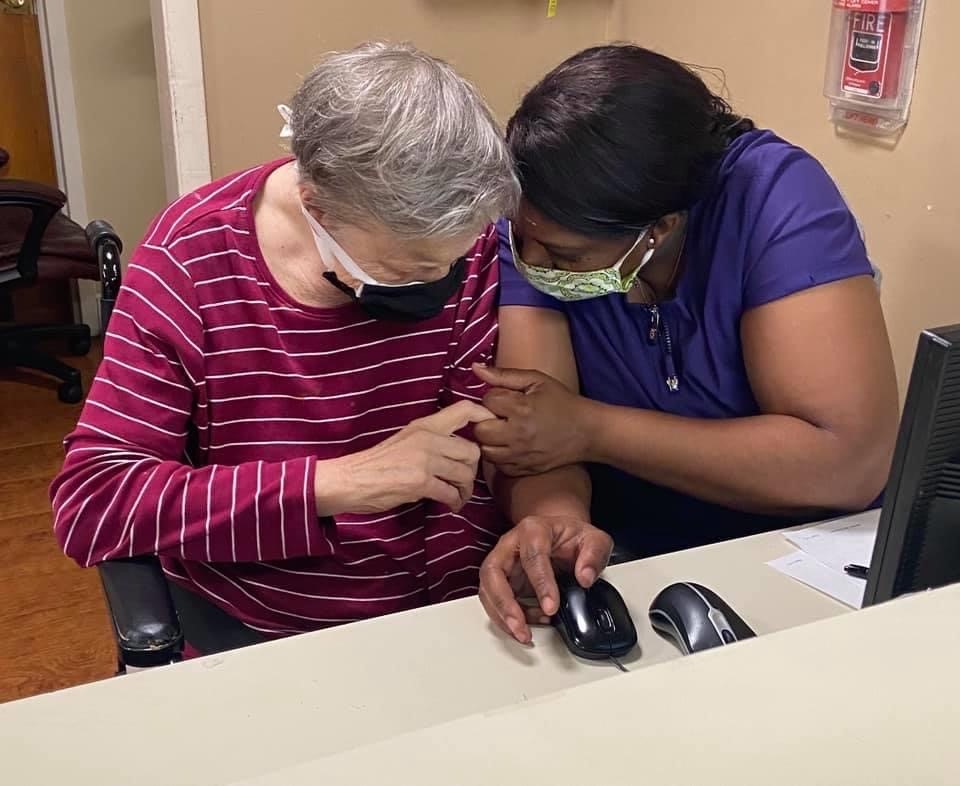One of the largest senior living operators in the U.S. is taking a new approach to its corporate operations to give its communities more autonomy, and adopted a new name in the process.
Affinity Living Group as of July 1 will be known as “ALG Senior.” The company also will designate its corporate headquarters where 80 employees work as a “community support center,” with the overall goal of helping each community meet its needs and build its culture. ALG’s portfolio consists of about 140 communities open throughout the U.S. Southeast and another 20 communities under development.
The Hickory, North Carolina-based senior living provider’s biggest change is to its organizational structure. While ALG will still maintain its call center and back-office functions such as accounting, maintenance, quality assurance, payroll, human resources, group purchasing and development, the company is no longer as closely dictating the day-to-day operations of its communities, according to President and CEO Charles Trefzger.
“It’s really easy to sit in a corporate office and talk down to people and say … ‘This is how it’s going to be,” Trefzger said. “But in fact, we should be listening more than talking, and we should be trying to problem-solve together rather than disciplining or just telling them how to get things done.”
Despite the changes to the way the company is operating, its ownership did not change, and Trefzger remains president and CEO. Each community will retain its market-specific brand name, and exist separate from ALG from a marketing standpoint.
As it did before, ALG Senior will seek to grow its network of assisted living communities through development or acquisitions. The company will also offer support and consulting services to other senior housing operators and providers, including development and acquisitions, financial planning and modeling, electronic medication administration and business analytics.
The changes come as the company sets a new direction and tone during the Covid-19 pandemic, which is accelerating the medicalization of assisted living.
“We have to figure out how to narrow our health care networks … and select health care partners in our network that can work on a common mission to ensure the care of our residents,” Trefzger said. “And we’re doing that by allowing the communities to have some level of autonomy that, historically, they haven’t had in the past.”
ALG has already made some moves this year to pare down its corporate footprint. The company in March furloughed 70 corporate workers and parted ways with a handful of company leaders including its COO, Neal Lail.
 ALG Senior's logo
ALG Senior's logo‘Need to change’
In dealing with Covid-19, it was clear to Trefzger that the company needed to move in a new direction, operationally and culturally.
Like many other senior living providers, ALG has faced higher expenses and declining revenues since the outset of the pandemic. At the same time, the company had been involved in a trademark dispute over the use of the Affinity name, according to court documents.
Trefzger also noticed that the ALG’s culture had drifted as the company grew and evolved over the years.
“It’s extraordinarily difficult to keep that culture where you want it as you bring on new people and new practices, as rules and regulations change, as society changes, as our families’ expectations change and our residents’ needs change,” Trefzger said. “Sometimes your culture gets pushed and distracted and disturbed, and you have to bring it back. That’s what we’re doing.”
These circumstances made now an opportune time to make such big changes — a process Trefzger compared to waking up one day and realizing you need to go on a diet.
“You look in the mirror and say, ‘I need to change.’ Trefzger said. “And Covid-19 really made us stop and look at what we’re doing and how we’re doing it.”
So, Trefzger set out this year to reimagine the company’s culture and operational structure. He researched and studied other companies, and took inspiration from two senior living providers which have similar organizational structures that place a premium on community autonomy: Mission Viejo, California-based The Ensign Group (Nasdaq: ENSG), which in 2019 spun off its senior living operations into publicly traded entity, The Pennant Group (Nasdaq: PNTG); and Louisville, Kentucky-based Trilogy Health Services.
Under the new organizational structure, ALG’s communities are still held accountable for meeting their goals, and the company will continue to define its expectations and benchmarks and set business plans for them.
ALG will continue to collect data and communicate with its communities to keep on top of how they’re doing financially and operationally. The company is also discussing ways to incentivize employees at communities that meet their goals, but those details are not yet finalized.
What has changed is that ALG no longer sees the need to engage in what Trefzger referred to as a “blame game” with communities that underperform or don’t meet expectations.
“If you don’t want to be supported, or you’re incapable of being supported, then we have to pivot and change and ensure the quality of our residents’ care and the financial integrity of our business,” Trefzger said. “But at the same time, we really need to focus on listening and supporting.”
Another goal is to make ALG’s communities more self-sufficient. Sometimes, communities can fall into the habit of relying on their company’s corporate office for tasks which they should be able to do themselves, Trefzger said.
“You end up taking things away from what the community would normally do on their own, because the people in the central office have those strengths and … can do them smarter, better, faster,” Trefzger said. “But then sometimes those people move on or retire, and you’re left wondering, why were we ever doing that?”
Put another way, ALG is teaching its communities how to fish.
“It’s the old Bible story about how I can feed you or I can teach you how to fish,” Trefzger said. “We’re into teaching how to fish.”


